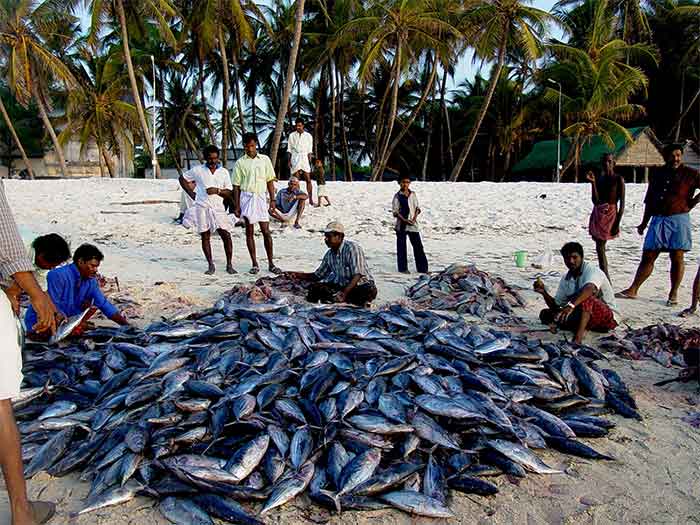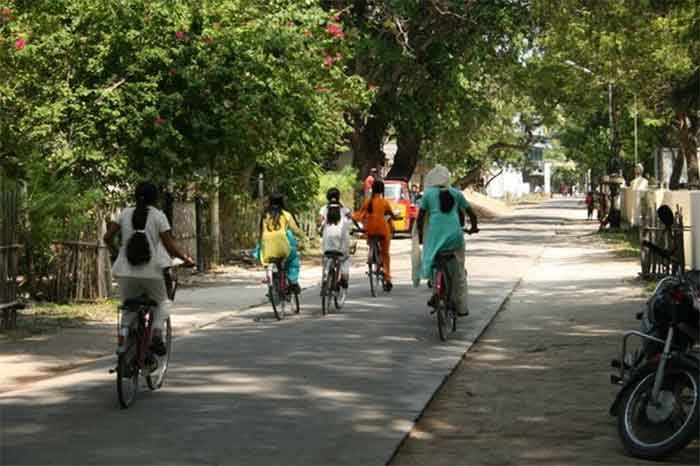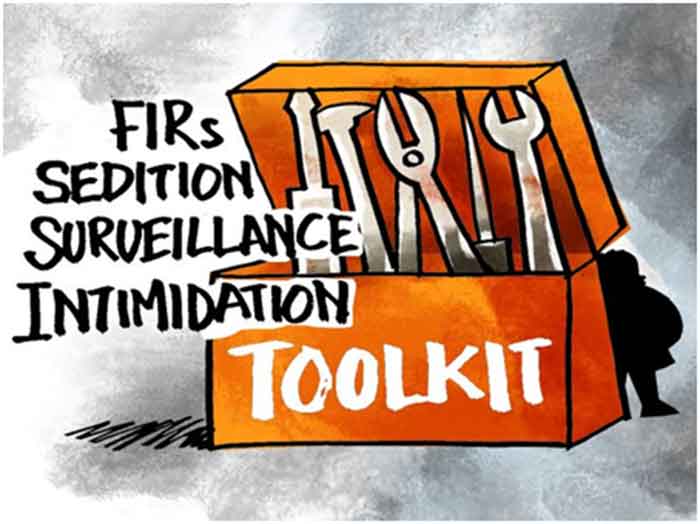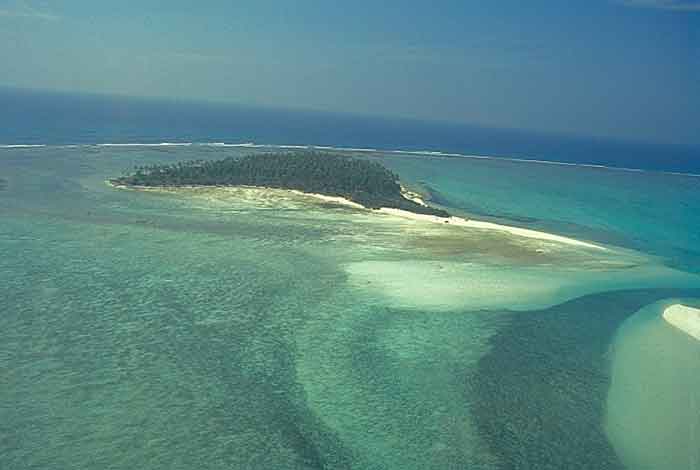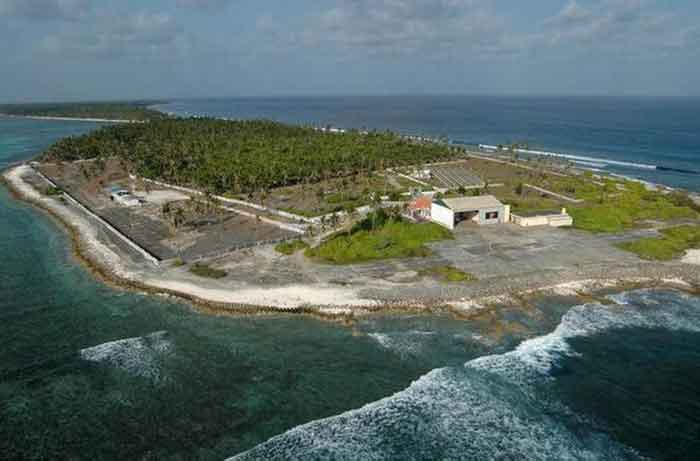
Prior consultation with the National Commission for Scheduled Tribes (NCST) mandatory for policy changes in Lakshadweep- Appeal for intervention`
To
Shri Ram Nath Kovind
President of India
Respected Rashtrapatiji,
I understand that that the Administrator of Lakshadweep has formulated a number of far reaching regulations, such as the Lakshadweep Development Authority Regulation (LDAR), the Lakshadweep Prevention of Anti-Social Activities Regulation, the Lakshadweep Animal Preservation Regulation (LAPR) and amendments to the Lakshadweep Panchayat Regulation, which will have a significant impact on the lives of the islanders and their ecology. The said regulations will affect their land rights, run counter to their customs and can impact in the long term the demographic pattern of the islands to the disadvantage of the local communities.
I appeal to you to intervene in the matter urgently and ensure that no changes are made that disturb the rights of the residents of Lakshadweep, who are predominantly members belonging to the Scheduled Tribes (STs). Moreover, it is not desirable to make any such changes without the consent of the residents of Lakshadweep.
Among the States and the Union Territories (UTs), Lakshadweep perhaps ranks on top with the highest proportion of ST population (within the State/UT) of 94.8%, followed by Mizoram (94.4%), Nagaland (86.5%), Meghalaya (86.1%), and Arunachal Pradesh (68.8%). The north eastern States already come within the purview of the Sixth Schedule to the Constitution, which confers special rights on the STs for preserving their cultural identity. The central idea of the Sixth Schedule is to confer greater authority on the people in decision making so as to ensure that they guide the development process in harmony with their cultural identity. In the normal course, considering the fact that STs constitute such a high proportion of the population of Lakshadweep and considering that the islanders have a unique identity and culture of their own which needs to be respected and preserved, Lakshadweep ought to have been given a similar status by now.
As of now, there are restrictions on outsiders acquiring property in the islands, meant to protect the identity and the culture of the resident communities of Lakshadweep. The proposed regulations are likely to affect those restrictions in the long run.
To some extent, the recently created UT of Ladakh stands on a similar footing as Lakshadweep. Ladakh has a large ST population with a special cultural identity. There were restrictions on outsiders purchasing property in Ladakh, when it was a part of J&K. Ever since Ladakh became a UT in October, 2019, the local communities there have been demanding that the UT be notified as a part of the Sixth Schedule region in order that their identity could be preserved and their rights safeguarded.
The National Commission for Scheduled Tribes (NCST), which is an institution created under Article 338A of the Constitution, at their 119th meeting held on 11-9-2019, took suo moto cognizance of the demand of the Ladakh communities and recommended to the President of India that the UT be notified as a Sixth Schedule area, on the ground that such recognition would be necessary to “preserve and promote” the cultural identity of the ST communities resident there. The NCST had specifically referred to the need for protecting the special agrarian rights, including land rights, that the Ladakh residents enjoyed as a part of J&K.
Like Ladakh, Lakshadweep is also a UT. The reasons cited by the NCST for recommending Sixth Schedule status for Ladakh apply equally to Lakhadweep. Indiscriminate entry of outsiders on the islands will undoubtedly threaten their culture and customs, leading to undesirable societal changes. If Ladakh is considered to be eligible for being notified as a part of the Sixth Schedule areas under the Constitution, from the point of view of equality of treatment, Lakshadweep too should be considered for a similar status with special Constitutional safeguards. If the matter were to be referred to the NCST, it is likely that the Commission would recommend that Lakshadweep be also brought under the purview of the Sixth Schedule.
Article 338A (9) of the Constitution requires that “the Union and every State Government shall consult the Commission on all major policy matters affecting Scheduled Tribes”. Since the regulations proposed by the Administrator of Lakshadweep involve major policy concerns, the Centre ought to have first sought views from the NCST on the same, before proceeding further.
In fact, there are other steps already initiated by the Centre in the case of Lakshadweep, such as “Lakshadweep and Andaman & Nicobar Islands Industrial Development scheme (LANID)” notified on 1-1-2019 and issuing an international competitive tender enquiry floated in 2019 for taking up the “Development of Minicoy Island, Eco-Tourism Resort” project, in the case of which, to the best of my knowledge, the Centre had not complied with the requirement stipulated in Article 338A (9). Considering that the NCST is an institution created by the Constitution for safeguarding the interests of the STs, it is clearly inappropriate for the Centre not to seek the Commission’s views in such important policy matters that concern the STs.
As a former Commissioner for Tribal Welfare in the erstwhile undivided State of Andhra Pradesh, I feel concerned that the Centre should rush into such measures that affect the lives of the STs, without prior consultation with the NCST and the Ministry of Tribal affairs
I earnestly appeal to you to put these regulations on hold and direct the Ministry of Home Affairs to refer the matter to the NCST for the Commission’s considered views. Even otherwise, it is not desirable to bring in regulations, imposed from above without consulting the people, that disrupt the lives of the STs.
Considering that Lakshadweep is a UT without a legislature, it is all the more desirable that a wide consultation is held with the local communities there, the elected representatives from the UT and the ST legislators in the Parliament, before making major changes in the policy. The local residents are perhaps the best judges of what constitutes “development” for them.
Respectfully,
E A S Sarma, Former Secretary to Government of India
Visakhapatnam
GET COUNTERCURRENTS DAILY NEWSLETTER STRAIGHT TO YOUR INBOX


